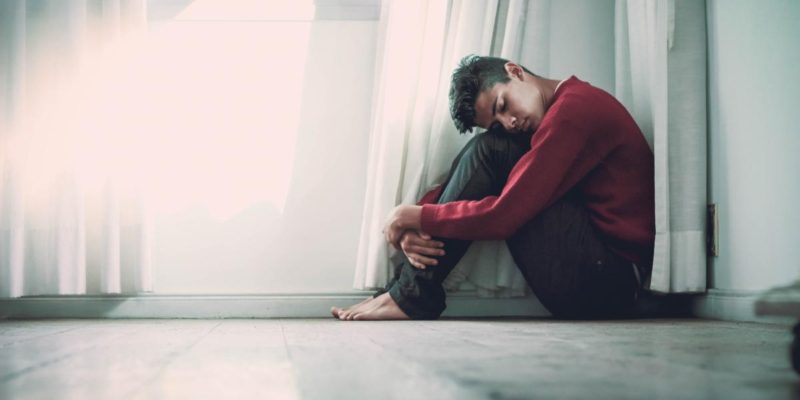To be anxious is to some extent a normative aspect of human experience. If inertia is the opposite of anxiety, then it is clear that some degree of anxiety is in fact helpful in powering the drive to achieve certain goals, and in fact surviving. Yet in modern Western society the term ‘anxiety’ has become synonymous with mental health difficulties. ‘Generalised anxiety disorder’ [or GAD] is a relatively new term, applied by mental health professionals to a person who might present complaining of an anxious mental and physical state with no clear cause. GAD is often characterised by a crippling anxiety that attaches itself to anything and everything and to all aspects of the individual’s life.
Our distant prehistoric ancestors had powerful and quick acting fight/flight responses in order to hunt and avoid becoming the hunted. The modern human brain is still wired to convert anxiety into a physical response, flooding the nervous system with chemical signals such as adrenalin and cortisol. The resulting physical responses, [raised heart rate, breathlessness, skin flushing, nausea and insomnia] are only too familiar to people who suffer heightened and prolonged episodes of anxiety. Our distant ancestors had plenty of opportunity to discharge this flood of fight/flight chemicals through the physical demands of survival. The cerebral and sedentary nature of modern life is far less suited to this method of returning the mind and body to a state of equilibrium.
CBT and Mindfulness techniques go some way to addressing this modern dilemma, suggesting behavioural measures through which anxiety can be controlled and reduced to more tolerable levels. These include easy to master techniques such as breathing and relaxation exercises, taking short breaks from work, from computer screens and phones in order to get up and move around. Becoming aware of the body and using it to engage the senses can be grounding and anxiety relieving.
The therapeutic approach used by psychoanalytic and existential psychotherapy strives to look more deeply into the root causes of human anxiety. People seek out counselling and support when levels of anxiety become too unbearable, and old ways of managing become dysfunctional. Whilst behavioural methods might enable some control over the symptoms, psychotherapy strives to be curious about the more existential aspects of anxiety. What is it to be human, to strive to live a meaningful and fulfilling life? What might make us anxious about the notion of failure as opposed to fulfilment and success? What is it about ourselves that we imagine others might reject or dislike? People today, more than at any other time, have a notion of themselves as having potential control over their lives and the choices they make and this makes them anxious. Anxiety, when raised to crippling levels, can make the sufferer feel that life is difficult to live. The therapist strives to explore with the client what it is that might make life a richer and more pleasurable journey. Understanding and confronting the existential nature of the anxiety can be essential in beginning to enable some mastery over it.

